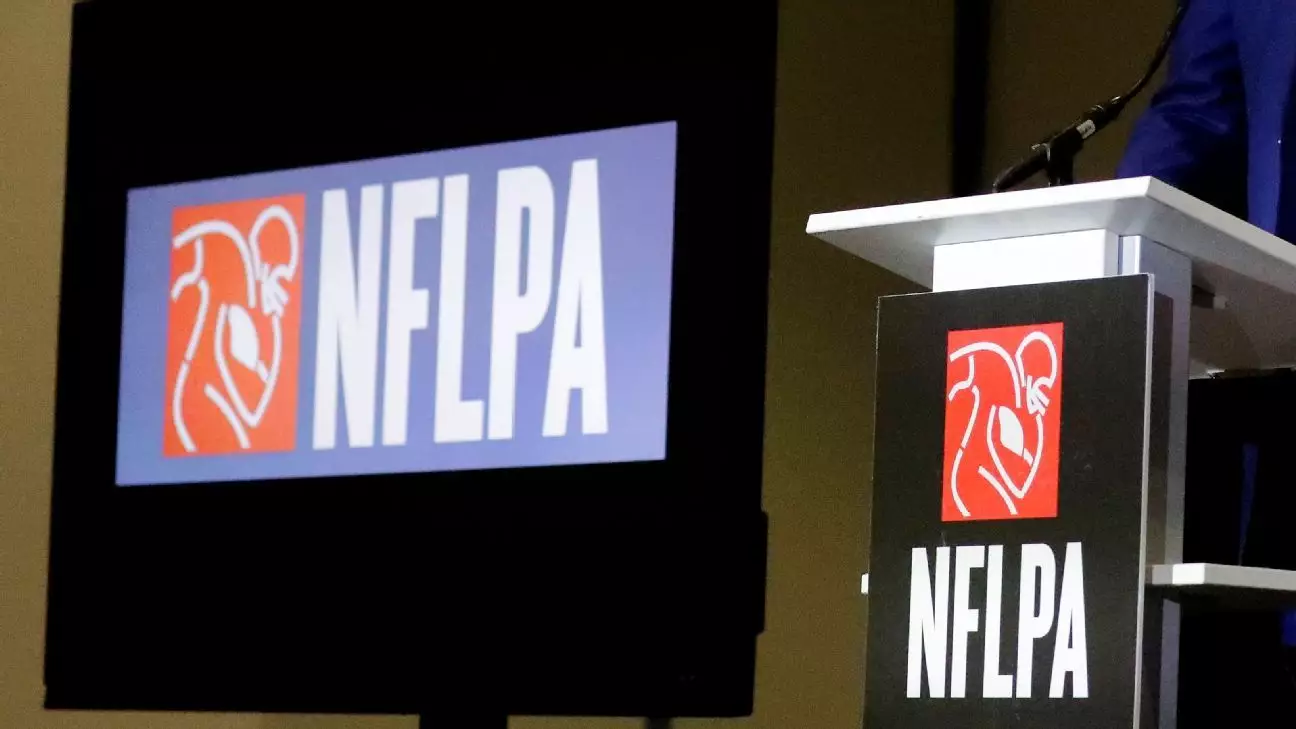The recent appointment of David White as interim executive director of the NFL Players Association underscores an organization desperately caught in a cycle of instability and questionable leadership choices. Less than three weeks after Lloyd Howell Jr.’s abrupt resignation—amidst revelations of conflicts of interest and questionable conduct—the union now faces the daunting challenge of repairing its battered reputation. White’s background, though seemingly impressive, raises eyebrows due to the opaque nature of the selection process and his limited direct experience with the NFL. The NFLPA’s leadership appears to be caught in a defensive posture, trying to project stability while grappling with the fallout from previous mismanagement and internal power struggles.
Having a figure with labor negotiations experience, such as White’s tenure with SAG-AFTRA and his affiliations with the Federal Reserve Bank of San Francisco, does not automatically translate into the necessary trust and credibility the players crave. The union’s core constituency—professional football players—are hyper-aware of their precarious positions, both financially and physically. They want a leader who embodies integrity and has a clear record of standing up for players’ rights, not just someone who ticks the boxes of corporate experience. The choice of White, amidst whispers of internal candidates like Don Davis or Charlie Batch, fuels suspicion that the decision was driven more by political expediency than by genuine constituency preference.
This lack of transparency fosters a ripple of discontent among players. For a union that claims to operate on democratic principles—player-led and membership-focused—the process appears to have been shrouded in secrecy. The fact that the union’s internal election last year was conducted at a resort with minimal public oversight only deepens doubts. When leadership is chosen behind closed doors, it undermines the very foundation of collective bargaining and mutual trust that the union proclaims to uphold.
The ongoing leadership vacuum is more than a logistical problem—it’s a crisis of integrity. Players are quick to notice when their union’s actions seem motivated by political alliances or personal ambition rather than the collective good. The repeated pattern of resignations, embroiled in controversy over financial conflicts and alleged misconduct, has severely eroded the union’s moral authority. It is difficult for athletes, many of whom have faced systemic exploitation and injury-related health issues, to feel secure knowing their representatives may be swayed by outside interests or influenced by internal power plays.
Trust in Leadership: The Foundation or Fragile Illusions?
The primary tension within the NFLPA stems from its struggle to restore the trust of its own members. Leadership figures like Jalen Reeves-Maybin and Ted Karras emphasize stability and unity, but those words fall flat without tangible proof of genuine reform. The players’ vocal distrust—highlighted by their comments demanding leaders “live above reproach”—reflects a deep disenchantment with the current power structure. When an organization’s most vocal stakeholders demand integrity, it underscores a fundamental failure: that credibility has been compromised.
Leadership renewal in such a high-profile union should bridge the gap between union officials and the membership. Yet, the recent appointment of White seems more like a compromise, possibly aimed at appeasing external stakeholders or avoiding frictions within the union’s internal factions. For the union to genuinely regain its footing, it must prioritize transparency, accountability, and authentic representation. Without these, envisioning a future where players confidently trust their leadership becomes increasingly difficult.
White’s past experience, though notable, primarily resides outside the direct realm of NFL issues. His work in entertainment labor unions and his connection with banking institutions may provide strategic insight, but they lack the immediate relevance and credibility needed in negotiations centered around health, safety, pensions, and franchise ownership influence. The risk of leadership being perceived as disconnected from the players’ core concerns is high, and skepticism is mounting that the union is once again steering into uncharted waters—this time, under the guise of stability.
The fact that the process to find a permanent director is still underway compounds the problem. The delay signals indecision and internal divisions, which only prolong the period of ambiguity. As players see their union embroiled in its own internal drama, many are questioning whether the organization can ever truly serve their interests or if it is merely a pawn in larger corporate and political machinations.
The Need for Authentic Reform: Moving Beyond Spin and Secrecy
For a union that represents a league with immense financial and cultural influence, the current leadership crisis reveals a failure to prioritize authenticity over optics. The empowerment of players must be genuine; their voices should dictate not just policy but also organizational direction. Yet, stories of backroom deals, confidential memos, and insular elections suggest the exact opposite.
Rebuilding trust requires more than just new leadership—it necessitates a fundamental cultural shift. The NFLPA needs to embrace openness, embrace its members’ voices more fully, and demonstrate a commitment to fighting for their best interests, unencumbered by external influences that could compromise its integrity. Without this shift, the union risks becoming a symbol of internal corruption and political expediency, rather than an advocate for the players’ needs.
Moreover, outside scrutiny and internal accountability mechanisms must be strengthened. If the union truly aims to serve as the players’ voice, it must adopt transparent processes for leadership selection and decision-making. Failing to do so only perpetuates the cycle of mistrust and disillusionment, which can have long-term repercussions—both for the union’s effectiveness and for the health of the sport itself.
Ultimately, the NFLPA’s ability to navigate this tumultuous period depends on its willingness to confront its own shortcomings head-on. Leadership crises are often symptomatic of larger systemic issues—persistence of secrecy, internal power struggles, and a disconnect from the very people they are meant to serve. The path forward demands honesty, humility, and an unwavering focus on restoring the dignity and trust of the players whose livelihoods and futures are at stake.

